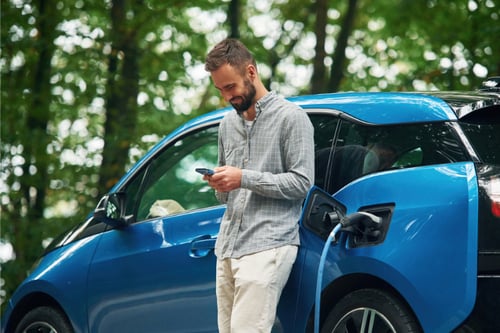The latest figures from the Society of Motor Manufacturers (SMMT) have revealed that EV production, including hybrids, has fallen by 7.6% in the first half of 2024.
With the return of the Labour Party to government, it has promised to restore the 2030 deadline for ending sales of new petrol and diesel vehicles. However, UK firms are split over whether the 2030 ban is a good or a bad idea.
Despite manufacturers having to build more EVs and reach increasing sales targets due to the ZEV mandate, the public have received mixed signals about making the switch to electric vehicles, which is reflected in SMMT’s latest data, showing that private sales of BEVs have fallen by 10.8% in the first six months of this year.
The main concerns that consumers have about EVs include cost and accessibility. In order to tackle this, the SMMT is lobbying the government to introduce incentives to encourage motorists to make the switch, including halving VAT on new battery electric cars for three years, exempting EVs from the expensive vehicle supplement to vehicle excise duty, and equalising VAT on vehicle charging.
The automotive industry can support EV uptake and help manufacturers reach the ZEV goals by making the transition as seamless as possible, including the maintenance and ownership experience. Improved education, more home and public charging initiatives and better test drives to try out the technology prior to purchasing can all help.
While introducing buyer incentives and better infrastructure will help, drivers also need to know what to do if their EV is forced off the road due to an incident. Motor Assist’s services can cover any vehicle type and provides a like-for-like EV replacement guarantee. Its network of bodyshops is also equipped to deal with electric vehicles, making the process following an incident as efficient as it would be with a petrol or diesel car.
Taking its support for the EV transition a step further, the latest initiative from Motor Assist, EValuate, allows ICE vehicle drivers to access an EV as their replacement while their vehicle is off the road. This gives motorists the opportunity to test an electric vehicle for an extended period, providing a real-world electric car experience for those potentially on the fence about purchasing an EV.
.png)



